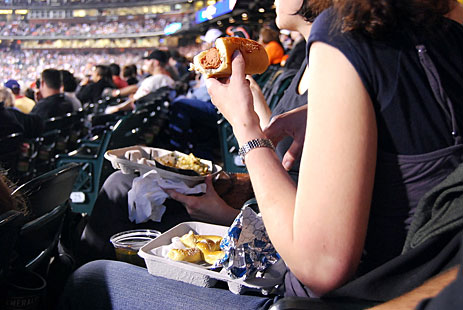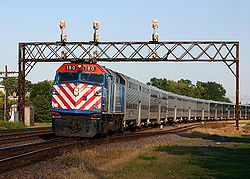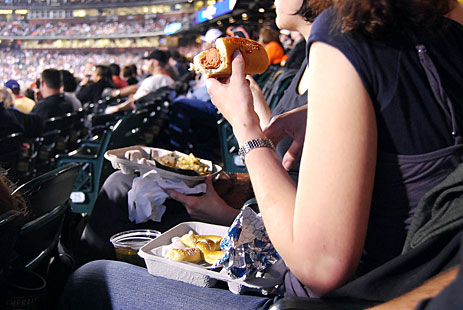 Photo courtesy Katie Spence via FlickrAttention, Florida sports fans: You might want to brown-bag it to the stadium.
Photo courtesy Katie Spence via FlickrAttention, Florida sports fans: You might want to brown-bag it to the stadium.
According to a report prepared for ESPN (via The New Republic’s Jonathan Cohn), Florida boasts seven of the eight stadiums nationwide in which 75 percent or more of food vendors were in violation of food safety regulations. While the Devil Rays’ Tropicana Field had 100 percent of vendors in violation, at 93 percent, the Miami Dolphins’ home stood out more for the nature of the violations:
In June 2009, an employee complained anonymously that small insects and other debris were blended into frozen alcoholic beverages at a stand where equipment wasn’t being cleaned. When inspectors checked, they issued a critical violation for a buildup of slime inside the frozen drinks machine.
“Buildup of slime”?! [*heave*]
Granted, these sorts of health violations aren’t technically covered under the federal food-safety reform bill under consideration; the “FDA Food Safety Modernization Act” addresses food processors, while restaurants are handled by state and local health codes. It’s worth noting, however, that most food vendors at sports stadiums are either national chain franchises or large food-service providers like Aramark or Sodexo (which was just fined $20 million by New York state for overcharging schools). The report suggests a “culture of corruption” (or perhaps “culture of putrefaction”?) when it comes to food safety rules generally.
Serious action by the federal government might change corporate attitudes. “Food processors reluctant to oppose the bill openly will be delighted if it dies a quiet death. That’s because, right now, very few cases of food poisoning are ever actually linked to what the person ate, and companies that sell contaminated products routinely avoid liability,” as Fast Food Nation’s Eric Schlosser wrote recently in the New York Times. So, U.S. Senate, by all means, pass food safety reform before it withers on the legislative vine.




